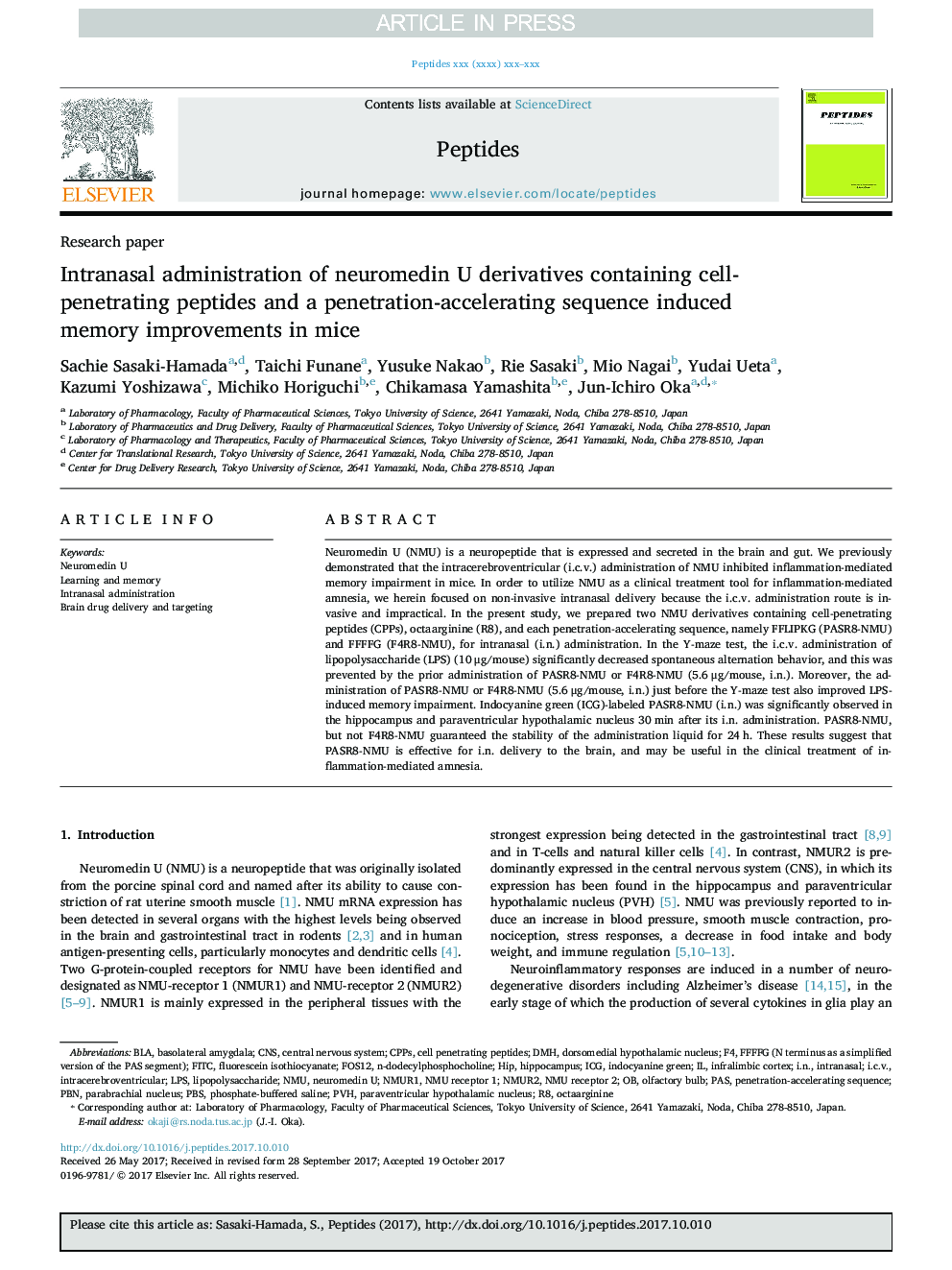| Article ID | Journal | Published Year | Pages | File Type |
|---|---|---|---|---|
| 8347628 | Peptides | 2018 | 6 Pages |
Abstract
Neuromedin U (NMU) is a neuropeptide that is expressed and secreted in the brain and gut. We previously demonstrated that the intracerebroventricular (i.c.v.) administration of NMU inhibited inflammation-mediated memory impairment in mice. In order to utilize NMU as a clinical treatment tool for inflammation-mediated amnesia, we herein focused on non-invasive intranasal delivery because the i.c.v. administration route is invasive and impractical. In the present study, we prepared two NMU derivatives containing cell-penetrating peptides (CPPs), octaarginine (R8), and each penetration-accelerating sequence, namely FFLIPKG (PASR8-NMU) and FFFFG (F4R8-NMU), for intranasal (i.n.) administration. In the Y-maze test, the i.c.v. administration of lipopolysaccharide (LPS) (10 μg/mouse) significantly decreased spontaneous alternation behavior, and this was prevented by the prior administration of PASR8-NMU or F4R8-NMU (5.6 μg/mouse, i.n.). Moreover, the administration of PASR8-NMU or F4R8-NMU (5.6 μg/mouse, i.n.) just before the Y-maze test also improved LPS-induced memory impairment. Indocyanine green (ICG)-labeled PASR8-NMU (i.n.) was significantly observed in the hippocampus and paraventricular hypothalamic nucleus 30 min after its i.n. administration. PASR8-NMU, but not F4R8-NMU guaranteed the stability of the administration liquid for 24 h. These results suggest that PASR8-NMU is effective for i.n. delivery to the brain, and may be useful in the clinical treatment of inflammation-mediated amnesia.
Keywords
i.c.v.LPSPBSFITCNMUR2BLANMUR1NMUPBNn-dodecylphosphocholineDMHNeuromedin UICGintracerebroventricularPVHbasolateral amygdalaCPPsOctaarginineIntranasal administrationIntranasalIndocyanine greenCNScentral nervous systemfluorescein isothiocyanateinfralimbic cortexlipopolysaccharidePhosphate-buffered salineHIPPASparabrachial nucleusdorsomedial hypothalamic nucleusparaventricular hypothalamic nucleusHippocampusCell penetrating peptidesolfactory bulbi.n.Learning and memory
Related Topics
Life Sciences
Biochemistry, Genetics and Molecular Biology
Biochemistry
Authors
Sachie Sasaki-Hamada, Taichi Funane, Yusuke Nakao, Rie Sasaki, Mio Nagai, Yudai Ueta, Kazumi Yoshizawa, Michiko Horiguchi, Chikamasa Yamashita, Jun-Ichiro Oka,
